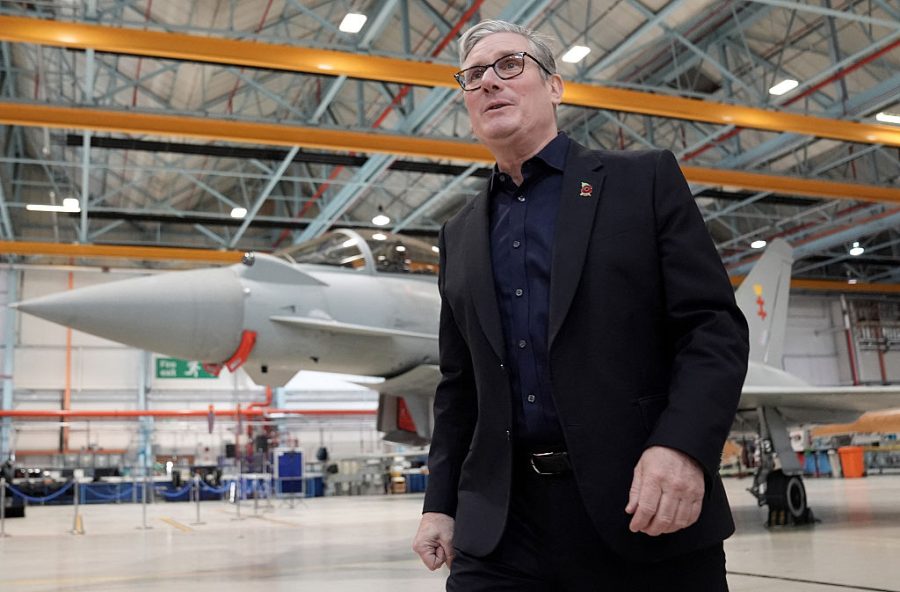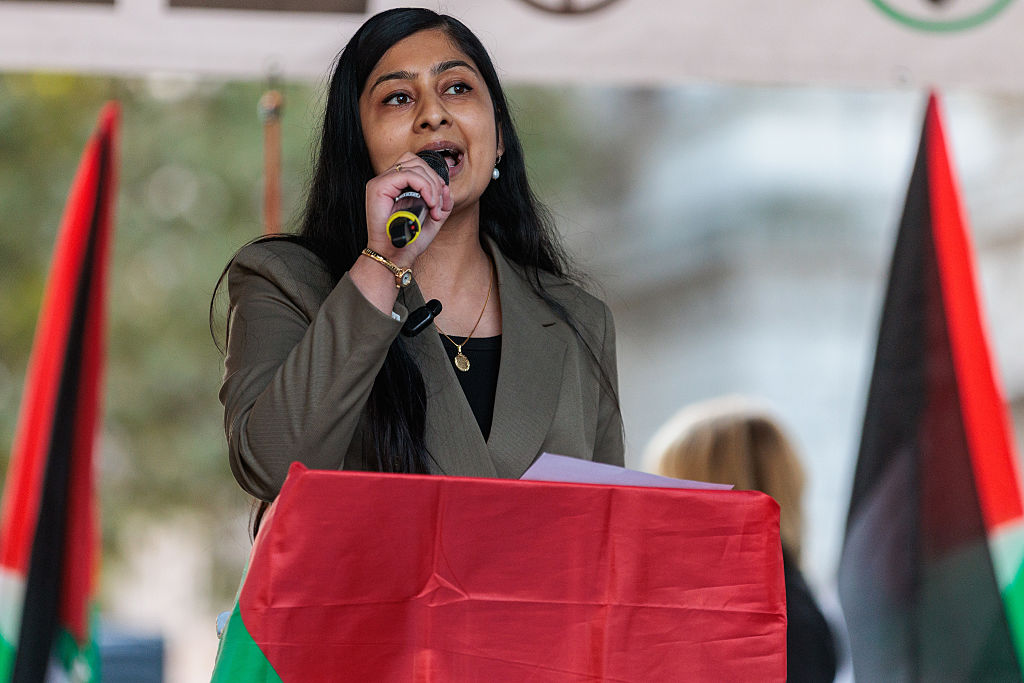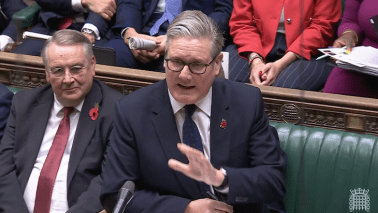Sir Keir Starmer is proving to be an unlucky prime minister. This week began with a demonstration of his haplessness. The Prime Minister travelled to Ankara to announce an £8 billion deal to supply the Turkish air force with 20 new Eurofighter Typhoons, beginning in 2030. Yet the political headlines in Britain were full of other more embarrassing issues: the collapsed China spy trial case, the accidental release of a convicted sex offender due for deportation, the aftermath of Labour’s humiliating loss of the Senedd seat in the Caerphilly by-election.
The commercial deal with Turkey is important. Starmer described it in his strange, resentful, maundering way as ‘the biggest fighter jet exports deal in a generation’, which is subject to several qualifications. Nonetheless, the UK defence industry will welcome it. The Typhoon is constructed by a multinational partnership which also includes Airbus Defence and Space (France, Germany and Spain) and Leonardo (Italy), but BAE Systems, headquartered in London, will undertake a third of the work. Other UK-based subcontractors will also be involved.
This is the perennial dilemma of international trade and defence diplomacy
This effectively saves BAE Systems’ production facility at Warton in Lancashire. In July, Unite the Union warned that as there were no further orders for Typhoons, workers were having to be transferred to other facilities and the critical mass of skills at Warton would be lost. The new order will revive the production line and support 6,000 jobs there and at nearby Samlesbury (it will not ‘create’ 6,000 ‘new’ jobs, though the government has been slow to correct that misconception). It will also provide work for Rolls-Royce at Bristol and Leonardo in Edinburgh.
Economically and industrially, this is undoubtedly good news. The official government statement lapsed into flatly managerial hyperbole in declaring that it ‘underline[s] the government’s work to make defence an engine for growth, delivering highly skilled jobs and putting money in the pockets of working people through the Plan for Change’. Unite the Union, because trade unions must always seem to battle impending disaster, ‘welcomed the announcement’ but went on to insist that ‘it remains imperative that the RAF also places an order for new Typhoon aircraft without delay’.
However, human rights groups have raised questions about selling military equipment to President Recep Tayyip Erdoğan’s régime. The former mayor of Istanbul, Ekrem İmamoğlu, Erdoğan’s main political opponent, was imprisoned on charges of corruption in March and is now subject to allegations of conspiring with British intelligence along with his campaign manager, Necati Özkan, and Merdan Yanardağ, editor-in-chief of news channel TELE1.
Amnesty International UK’s Polly Truscott demanded that Starmer ‘ensure UK business dealings don’t exacerbate or provide diplomatic cover for human rights abuses’. She pointed at the list of problems:
A massive crackdown on human rights is taking place in the country. Just this week, a major independent TV channel has been taken over by the state and its editor-in-chief arrested on “espionage” charges. The main opposition party is facing relentless attacks.
This is the perennial dilemma of international trade and defence diplomacy. Labour has already met it painfully in the case of China: in April 2021, the party supported a resolution by the House of Commons which stated ‘that Uyghurs and other ethnic and religious minorities in the Xinjiang Uyghur Autonomous Region are suffering crimes against humanity and genocide’. Then-shadow foreign secretary David Lammy, a reckless blowhard at the best of times, promised that a Labour government would declare China’s actions as a genocide. That pledge did not survive the transition to power.
Alternatively, we could look at Saudi Arabia. We know it is not a state dedicated to liberal democracy and the defence of human rights, the 2018 murder of journalist Jamal Khashoggi a demonstration of its ruthlessness. Yet in 1985, the UK government agreed the Al Yamamah arms deal, described by the Financial Times as ‘the biggest [British] sale ever of anything to anyone… staggering both by its sheer size and complexity’. BAE Systems has nearly 7,000 workers in Saudi Arabia and there are three UK military programmes in the country, including a British Military Mission.
Turkey is, as defence secretary John Healey noted, ‘an important Nato ally and the gatekeeper to the Black Sea… this deal will strengthen Nato deterrence and help make us all safer’. It is also a repressive, autocratic and militaristic régime – in 2020 President Erdoğan said ‘our civilisation is one of conquest’. When Turkey illegally invaded and occupied the northern part of Cyprus in 1974, creating a division which lasts to this day, its Nato allies did not sanction it.
This is hard politics. No one imagines Sir Keir Starmer likes or approves of the Turkish government, and its reliability as a partner has frequently wobbled. But an ally it remains. The UK could act purely on the basis of what is good and right and moral, but that would entail looking inestimably further than Turkey, and it is not clear what would be left of our foreign policy at the end of such a rigorous process.








Comments